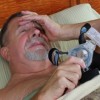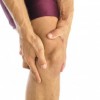
Power Naps Use Brain Differently Than Previously Thought
A new study suggests that while a body takes a short nap, short of deep sleep, the right-brain is actively performing tasks and becomes more engaged than normal. Researchers expected that because 87% of the participants were right-handed, the left brain would become more integrated, since right-handed individuals normally are. However, the results were consistent […]

Sleep Deprivation Can Cause Metabolic Damage
Weight loss is often recommended for obese patients with sleep disorders, and sleep deprivation is known to cause weight gain, but now researchers know the link. Sleep deprived fat cells, it turns out, do not respond as well to insulin as they should. Participants in a new study spent a total of eight days under […]

Poor Quality Sleep Can Raise Risk of Catching Cold Virus
Achieving less than optimal sleep can put you at a much higher risk of catching a cold, research shows. Sleep deprivation has been linked to numerous health issues, including the body’s ability to fight off bacteria and viruses. In a recent study, participants who got less than seven hours of sleep a night were found […]

Sleep Deprivation Causes Emotional Turmoil
While it may seem obvious if you are sleep deprived, a study proves that there is a relation between sleep deprivation and how you react emotionally. Researchers found that the brain does not actually become less responsive while sleep deprived, but in fact the brain’s emotional centers become 60% more reactive. Acquiring enough sleep can […]

Seniors Using Certain Insomnia Drugs At Higher Risk For Dementia
Senior citizens using a type of anxiety or insomnia drug called benzodiazepines may be more likely to develop dementia than those who do not. The drugs can be habit-forming and patients who should only use them for a few weeks or months end up using them for years. Doctors say that using benzodiazepines for a […]

Sleep Deprivation Causes Slower Cognitive Performance
A study measuring cognitive performance in sleep deprived individuals shows that the more sleep deprived you become, the slower you are able to finish a task. The amount of time you have been awake and what time of day you attempt the task can have an effect on the outcome as well. Subjects were asked […]

Common Sleep Disorders: Sleep Apnea
A very serious sleep disorder that affects an estimated 12 million Americans every night is called sleep apnea. Sleep apnea means that there are moments during sleep when breathing temporarily stops and starts back up again. A person suffering from sleep apnea may stop breathing for 10 to 30 seconds at a time, and it […]

Sleep Disorders Occur at Early Stages of Alzheimer’s
An abrupt change in sleeping patterns could be an early indicator of Alzheimer’s, according to a new study. Researchers from the Washington University School of Medicine in St. Louis, working on a mouse model, found that when the earliest signs of Alzheimer’s plaque appear on the brain, sleep patterns become extremely disturbed. They found that […]

The Timing Of Learning Affects Memory
Getting quality sleep after learning something new can be imperative in retaining the new-found knowledge. A new study shows that it may be even more helpful to sleep sooner after learning. A group of adolescents were trained in 2 tasks at 3pm and another group at 9pm, followed by a night of sleep. Evaluations were […]

Common Sleep Disorders: RLS (Restless Leg Syndrome)
Tossing and turning all night is a fear to some and a vague dream to others, but to some the matter is more complicated. Restless Leg Syndrome is a poorly understood condition that causes discomfort in the legs while laying or sitting, and it affects about 5 – 15% of Americans. RLS can affect both […]

Recent Comments